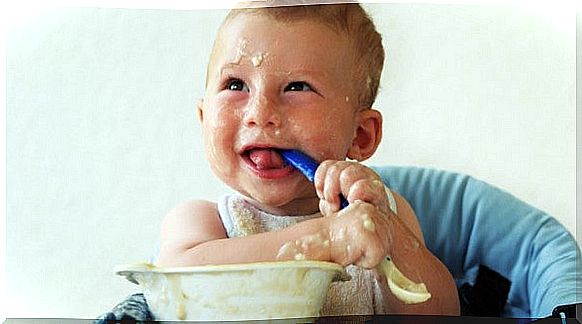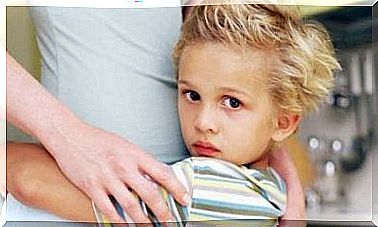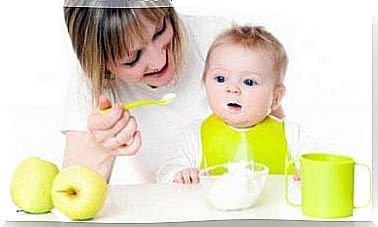Children’s Personality Influences Their Eating Habits – Being Parents

There is evidence that the personality of children influences their eating habits. Let’s see which way.
Each child has particular characteristics and traits that differentiate him from the rest, that is, give him a personality. The fact that they refuse to take food or behave in a certain way in front of a plate of food is quite common at some point in their growth.
However, they do not behave this way just because they are children. In fact, these behaviors are linked to the characteristics that define it: with the personality of children. The good thing is that it can help you make decisions about it and know how to deal with these situations.

The child’s personality when it’s time to eat
Children are exposed to food in different ways as they grow older. If at the beginning of his life the staple food is milk, this changes and it is important that he incorporates new flavors and eating habits.
The relationship that a child establishes with food is what we call eating behavior. And it has to do with several questions. For example, with how they experience the relationship with food in the family environment. Or with the availability of food and social status. Or again, with affections and traditions. It is therefore not an isolated behavior or one that occurs without reason.
Children’s personality types
Let’s see the different types of personality and character:
- The child who adapts to different situations and changes that happen to him. He is a happy person who has regular and predictable habits. He has the ability to communicate with others and his level of attention is good.
- The one who is very active and absent-minded. He withdraws into situations of change and often his bad temper wins out. It is more difficult to generate regular habits, and temper tantrums are frequent when sleeping or eating. It is said that we are dealing with a “difficult” child.
- Finally, the child who has a low level of activity and who has difficulty adapting to new situations and changes. They are sociable people and they always seek parental approval.
What is the relationship between personality and food?
There are studies that prove that personality and emotions influence children’s eating habits.
Anger, usually in picky eaters, leads them to be more demanding when it comes to trying new foods.
Sadness or anxiety causes lack of appetite. On the other hand, the joy and tranquility of “easy” children make the child adapt better to a variety of foods.
In general, poor appetite problems are related to experiences associated with social and family interactions. Some problems they encounter in their relationships with their parents or those around them will influence hunger.
Although it has to do with the emotional side, the degree of sensitivity of the child is related to his personality. In other words, one thing leads to another.
Refusing to taste a food, on the other hand, is associated with overprotective situations and dominant personalities. Parents surely have experience in this last point.
Children who refuse food are identified according to certain personality traits:
- Those who refuse to eat because of the texture or color of the food, the sensory children.
- Those with perfectionist traits when it comes to eating have additional demands. For example, that one food is not mixed with others.
What do we do now?
The takeaway from this relationship is the ability to identify children’s behaviors knowing that they are not just happening because they are small. Personality has an influence when it comes to eating. The child’s age also plays a role, as it can relax or exaggerate their relationship with food.
Depending on the interaction between children’s personality and food, the solution will be different. You may have to support the child in another way as he grows. Or even change certain eating habits. In any case, it is essential to be patient.








